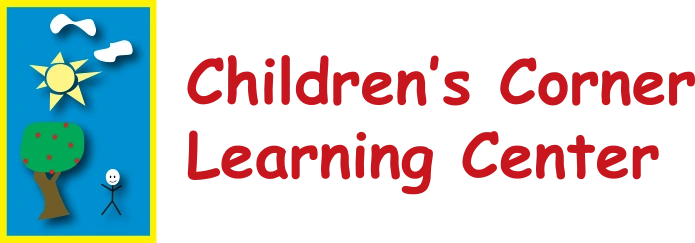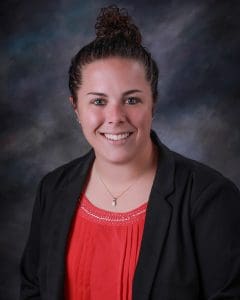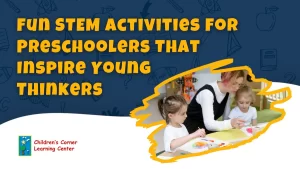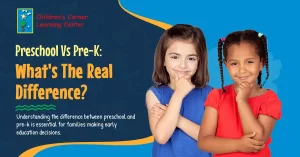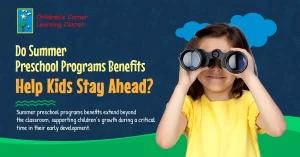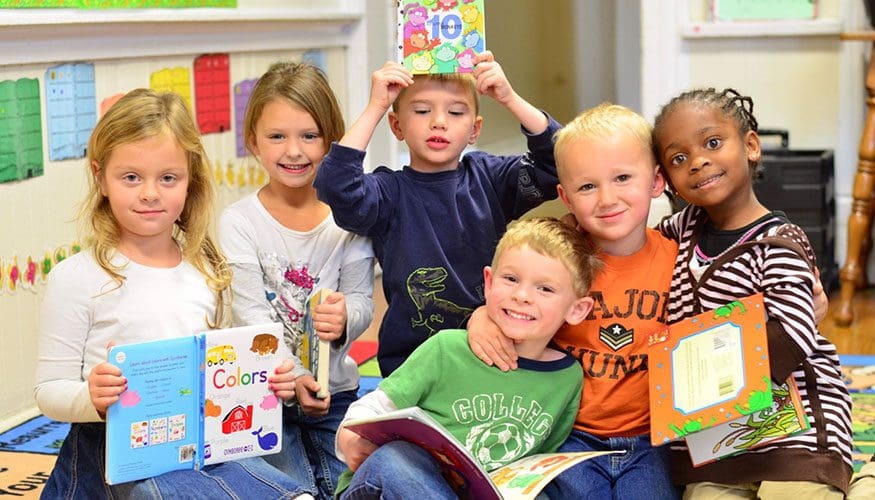Choosing the right Yorktown preschools is one of the most important decisions you’ll make for your child’s early education. A nurturing and engaging environment sets the stage for lifelong learning, social development, and confidence. But with so many options available, how do you know which preschool is the best fit?
The ideal preschool should offer a warm, safe atmosphere where children can explore, create, and grow at their own pace, guided by caring, experienced educators. Every program has unique strengths, from structured curriculums to play-based learning approaches. Understanding what to look for will help you make an informed choice that supports your child’s academic and emotional growth.
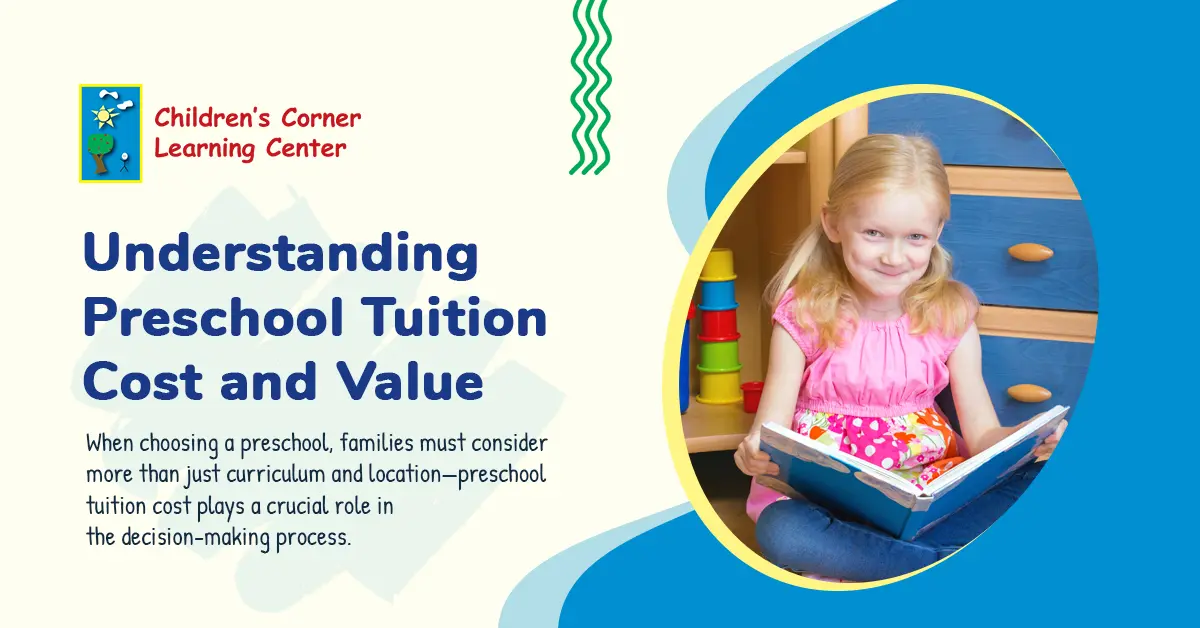 When choosing a preschool, families must consider more than just curriculum and location—preschool tuition cost plays a crucial role in the decision-making process. Tuition rates vary widely, and understanding what contributes to these differences can help you determine the best fit for your child and budget. While affordability is key, the program’s value should also be a top priority.
When choosing a preschool, families must consider more than just curriculum and location—preschool tuition cost plays a crucial role in the decision-making process. Tuition rates vary widely, and understanding what contributes to these differences can help you determine the best fit for your child and budget. While affordability is key, the program’s value should also be a top priority.
 One of the biggest questions parents face when considering preschool is: “What is the right age to enroll my child?” Finding the ideal preschool age near me depends on developmental readiness, program requirements, and personal family needs. While many preschools accept children as young as 2 ½ or 3 years old, every child is different. Understanding when your child is ready for preschool ensures they get the most out of their early learning experience.
One of the biggest questions parents face when considering preschool is: “What is the right age to enroll my child?” Finding the ideal preschool age near me depends on developmental readiness, program requirements, and personal family needs. While many preschools accept children as young as 2 ½ or 3 years old, every child is different. Understanding when your child is ready for preschool ensures they get the most out of their early learning experience.
 Choosing the right preschool for your child is a big decision, and many parents feel overwhelmed by the options available. Finding reliable preschool help can make the process easier, ensuring you select a school that fits your child’s needs, learning style, and personality. From researching programs to asking the right questions, there are several steps you can take to make an informed choice with confidence.
Choosing the right preschool for your child is a big decision, and many parents feel overwhelmed by the options available. Finding reliable preschool help can make the process easier, ensuring you select a school that fits your child’s needs, learning style, and personality. From researching programs to asking the right questions, there are several steps you can take to make an informed choice with confidence.
Understanding Preschool Tuition Cost and Value
 When choosing a preschool, families must consider more than just curriculum and location—preschool tuition cost plays a crucial role in the decision-making process. Tuition rates vary widely, and understanding what contributes to these differences can help you determine the best fit for your child and budget. While affordability is key, the program’s value should also be a top priority.
When choosing a preschool, families must consider more than just curriculum and location—preschool tuition cost plays a crucial role in the decision-making process. Tuition rates vary widely, and understanding what contributes to these differences can help you determine the best fit for your child and budget. While affordability is key, the program’s value should also be a top priority.
Key Factors That Affect Preschool Tuition Cost
The cost of preschool isn’t just about paying for a classroom—it reflects the quality of education, facilities, and support services your child will receive. Several factors contribute to tuition rates, and understanding them can help you choose.- Location: Preschools in high-demand areas tend to have higher tuition due to property costs and operational expenses.
- Curriculum Approach: Programs such as Montessori, STEM-based, or bilingual education often come with added costs due to specialized materials and training.
- Teacher Qualifications: Schools with highly experienced and certified teachers may charge more, as they provide a higher standard of education and care.
- Student-Teacher Ratio: A lower ratio often means higher tuition, as smaller classes require more educators for personalized attention.
- Extended Care Options: Some preschools offer before- and after-school care, which may be included in tuition or as an additional fee.
How to Assess the Value of a Preschool Program
A higher tuition doesn’t always mean a better experience; a lower cost doesn’t always indicate lesser quality. The key is to consider what the tuition includes and how it benefits your child’s growth.- Comprehensive Curriculum: Look for a program that supports cognitive, social, and emotional development.
- Enrichment Activities: Music, art, and language programs can add value to a child’s early education experience.
- Safety and Cleanliness: Well-maintained classrooms and play areas indicate a preschool’s commitment to child well-being.
- Engaged and Caring Staff: Teachers should foster a nurturing and interactive learning environment.
- Parent Involvement: Schools encouraging family participation often create a stronger community and learning experience.
Questions to Ask About Preschool Tuition and Fees
Before committing to a preschool, asking the right financial questions can prevent unexpected expenses and ensure transparency. Every school has different policies, so clarifying the details upfront is essential.- What is included in tuition? Ask whether meals, supplies, and extracurricular activities are covered or if there are additional costs.
- Are there any financial aid options? Some preschools offer scholarships, sibling discounts, or sliding-scale tuition rates.
- What is the payment structure? Understanding whether tuition is billed monthly, quarterly, or annually can help with budgeting.
- Are there penalties for schedule changes? Check if adjusting hours, withdrawing early, or switching programs incurs additional fees.
Determining the Right Preschool Age Near Me
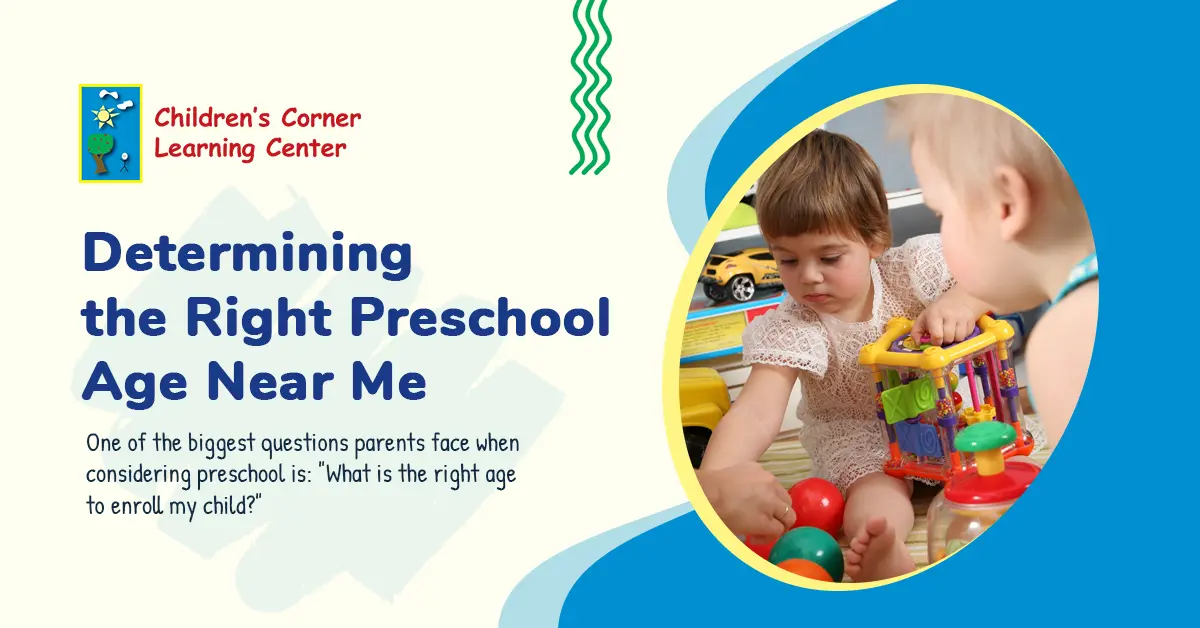 One of the biggest questions parents face when considering preschool is: “What is the right age to enroll my child?” Finding the ideal preschool age near me depends on developmental readiness, program requirements, and personal family needs. While many preschools accept children as young as 2 ½ or 3 years old, every child is different. Understanding when your child is ready for preschool ensures they get the most out of their early learning experience.
One of the biggest questions parents face when considering preschool is: “What is the right age to enroll my child?” Finding the ideal preschool age near me depends on developmental readiness, program requirements, and personal family needs. While many preschools accept children as young as 2 ½ or 3 years old, every child is different. Understanding when your child is ready for preschool ensures they get the most out of their early learning experience.
What Age Do Most Preschools Accept?
Preschools have different age requirements, and it’s essential to check with local programs to find the best fit. While many follow a general guideline, age requirements vary based on curriculum, structure, and state regulations.- Traditional Preschools (Ages 3-5): Most programs accept children between 3 and 5, focusing on early academic and social skills.
- Transitional Programs (Age 2-3): Some schools offer early preschool programs for younger toddlers ready for structured learning.
- Pre-K Programs (Age 4-5): Designed to prepare children for kindergarten, Pre-K programs emphasize more advanced learning and socialization.
- Play-Based or Montessori Programs (Age 2+): Some child-centered preschools accept children as early as 2 years old, focusing on exploration and independence.
Signs Your Child Is Ready for Preschool
Not all children develop at the same pace, so age alone isn’t always the best indicator of preschool readiness. Key developmental signs can help determine if your child is prepared for a structured learning environment.- Independence: Your child can handle basic self-care tasks like using the bathroom, washing hands, and putting on shoes.
- Social Readiness: They show interest in playing with other children and can follow simple group activities.
- Communication Skills: They can express their needs, understand basic instructions, and respond to teachers or caregivers.
- Attention Span: Your child can focus on activities like listening to a story or working on a simple task for a few minutes at a time.
- Emotional Maturity: They are comfortable being away from their parents for a few hours and can manage small transitions throughout the day.
How to Choose the Best Age for Your Child
Every family has unique needs, so determining the right preschool age near me involves considering what works best for your child’s personality and household schedule.- Family Schedule: Some parents prefer to enroll their children earlier if they need childcare support while working.
- Preschool Goals: Consider whether you want a program focused on socialization, academics, or a balance of both.
- Part-Time vs. Full-Time: Younger children may benefit from part-time enrollment to ease into the preschool experience.
- Teacher and Program Fit: Some preschools cater to younger learners with flexible schedules and play-based learning.
Finding Preschool Help to Make the Right Choice
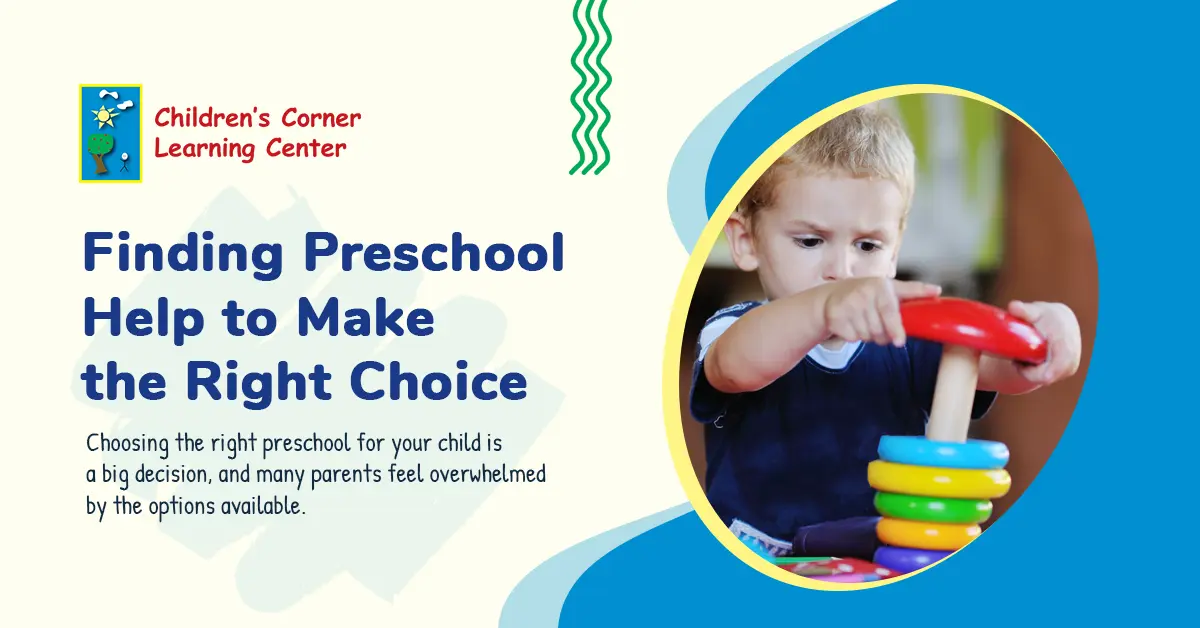 Choosing the right preschool for your child is a big decision, and many parents feel overwhelmed by the options available. Finding reliable preschool help can make the process easier, ensuring you select a school that fits your child’s needs, learning style, and personality. From researching programs to asking the right questions, there are several steps you can take to make an informed choice with confidence.
Choosing the right preschool for your child is a big decision, and many parents feel overwhelmed by the options available. Finding reliable preschool help can make the process easier, ensuring you select a school that fits your child’s needs, learning style, and personality. From researching programs to asking the right questions, there are several steps you can take to make an informed choice with confidence.
Where to Start When Looking for Preschool Help
If you’re unsure where to begin, many resources are available to guide you through the selection process. Whether you’re looking for recommendations or official accreditation, leveraging these tools can help narrow your options.- Parent Reviews and Recommendations: Talking to other parents in your community can provide honest feedback about local preschools.
- State Licensing and Accreditation: Checking a preschool’s credentials ensures it meets safety and educational standards.
- Preschool Directories and Websites: Online platforms list preschools by location, tuition, and curriculum type, making it easy to compare.
- Trial Classes and Open Houses: Visiting a preschool in person allows you to observe the environment and interact with teachers.
- Educational Consultants: Some experts specialize in matching families with the right preschool if you need extra guidance.
Red Flags to Watch for in Preschool Programs
Not all preschools offer the same level of care and education, so it’s important to recognize warning signs that may hint a poor fit. Avoiding schools with these red flags can help ensure your child is in a safe, nurturing setting.- Unclear Safety Policies: If a preschool lacks clear security measures, emergency plans, or hygiene protocols, it may not be a safe choice.
- High Turnover Rates: Frequent staff changes can disrupt the learning environment and indicate potential issues with management.
- Lack of Structure or Curriculum: A well-designed program should include play-based and structured learning activities.
- Negative Parent Reviews: Consistent complaints from other families about communication, cleanliness, or teaching quality should raise concerns.
- Limited Parent Involvement: Schools that discourage parental participation may lack transparency or engagement with families.
Questions to Ask When Touring Preschools
A preschool tour lets you see the learning environment firsthand and ask essential questions. By preparing in advance, you can gain insight into the school’s values, structure, and approach to early childhood education.- What is the daily schedule? Understanding the balance between play, structured learning, and rest time is essential.
- What qualifications do the teachers have? Well-trained educators should have experience and credentials in early childhood education.
- How does the school deal with discipline and conflict resolution? Their approach should align with your parenting philosophy.
- What is the teacher-to-student ratio? A lower ratio ensures that children receive more individual attention.
- How does the school communicate with parents? Regular updates, conferences, and newsletters keep you informed.
